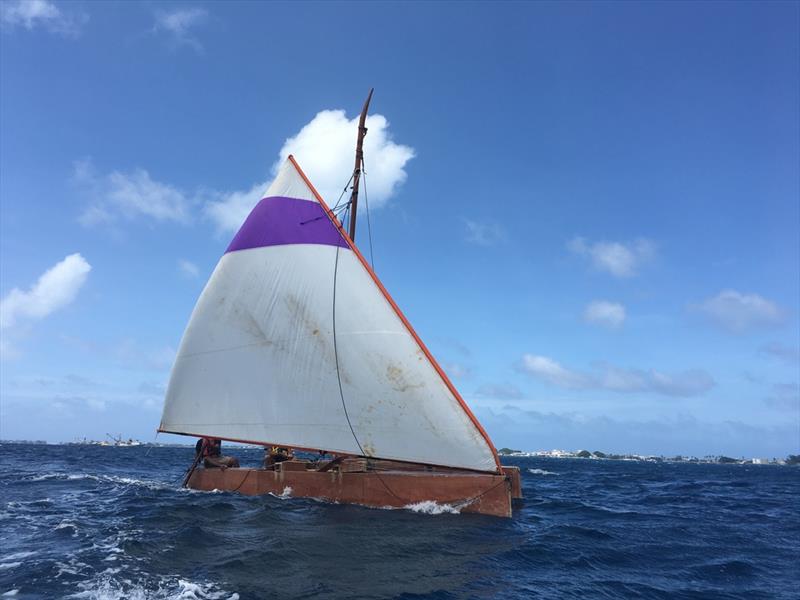
Reducing shipping emissions in the Marshall Islands
by Rob Denney 9 Mar 2020 23:02 GMT

Mini Cargo Ferry © Harryproa
An Australian designed green-shipping solution has won the confidence of researchers tasked with determining how the annual consumption of 1,250,000 litres of petrol used by small boats in the Marshall Island archipelago can be reduced.
As climate change wreaks havoc in the Central Pacific, the nation of legendary Marshallese navigators are forced to navigate a new climate reality as part of world wide attempts to reduce shipping emissions by 50% by 2050.
The Harryproa Mini Cargo Ferry (MCF), designed by Queensland company Harryproa, ticks all the boxes- ease of construction and operation, low cost, and high payload. The MCF is exclusively sail-powered, producing a zero emissions craft for lagoon and coastal use. In keeping with traditional Marshallese craft, the MCF carries a Pacific rig and is steered by oar.
Simplicity of construction exemplifies the versatility of the MCF. The hulls and beams are built from half sheets of plywood, fibreglass cloth and epoxy resin. There is one simple curve to cut and no need to use power tools, metal fastenings or infrastructure apart from half a dozen sawhorses and a roof to keep the rain off.
The MCF is 7.2m/24' long, weighs 250 kgs/550 lbs and carries 1,000 kgs/2240 lbs of cargo and/or passengers. The build time is approximately one month.
If time allows, the deck construction between the hulls will be planks made on the beach from plastic rubbish, melted and formed into 1.4m lengths. Each MCF will contain about 40 kgs/90 lbs of recycled rubbish. The same recycling technique could be used to produce building blocks, road base, furniture and other applications.
Representatives from the Marshall Islands are currently gathered at WAM in Majuro to build the first MCF under the supervision of Rob Denney, Harryproa boat builder. They will then return to their villages to construct their own MCFs. In the near future, more than 100 MCFs could be built in the Marshall Islands with other Pacific island nations to follow.
The 5 year program is funded by the German Government Ministry for Environment, Nature Conservation and Nuclear Safety and implemented by the German International Cooperation (GIZ) with various national and international partners.
With the MCF project under way, the next project is a 24m (80') Harryproa Cargo Ferry, designed to replace diesel-burning ships which are deep drafted and unable to reach many villages. These ships require large volumes of cargo to justify a passage and expensive maintenance to keep them afloat.
The Harryproa Cargo Ferry carries 10 tonnes of cargo and 25 passengers and is operated by two crew. It has knee-deep draft and high sailing performance backed-up by an electric motor powered by solar panels and batteries for no wind conditions. It features 'mini shipping containers' built on the beach from plastic rubbish, to make cargo handling simple in the same way as TEU containers have for ship freight.
Starting In April 2020, Harryproa is building a prototype which will voyage around the Pacific to further demonstrate the validity of the concept, and raise awareness about the achievability of low emissions shipping.